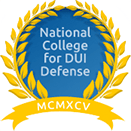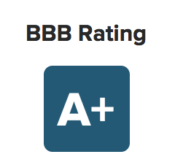
Driving under the influence (DUI) carries serious legal consequences that can impact your license, your finances, and your future opportunities for years to come. New Jersey prosecutes impaired driving aggressively, but arrests don’t always lead to convictions when skilled attorneys identify flaws in the state’s case or violations of your constitutional rights. Understanding how to get a DUI dismissed in New Jersey requires knowledge of legal defenses, procedural requirements, and technical standards that prosecutors must meet to secure convictions.
Your future is on the line. You need an attorney with the experience to fight for it. At The Law Offices of Jonathan F. Marshall, we can evaluate your case, identify weaknesses in the prosecution’s evidence, and fight to get your charges completely dismissed or reduced. Contact us today to schedule a free, no-obligation consultation with a reputable New Jersey DUI lawyer.
Can a DUI Be Dismissed?
DUI charges in New Jersey can absolutely be dismissed when prosecutors fail to present sufficient evidence or when law enforcement violates your constitutional protections during the stop, arrest, or testing process. NJ courts also dismiss DUI cases when authorities fail to meet procedural requirements or when unreasonable delays violate your right to a speedy trial.
Common grounds for dismissal include the following:
- Illegal traffic stops made without reasonable suspicion of a violation
- Failure to provide proper Miranda warnings before a custodial interrogation
- Improperly administered breathalyzer tests or the use of uncalibrated equipment
- Blood tests conducted without valid consent or a lawful warrant
- Field sobriety tests performed under improper conditions or by unqualified officers
- Missing or destroyed evidence that hinders your ability to build a defense
- Unreasonable delays in bringing the case to trial compromise your defense
- Prosecutors’ failure to disclose requested discovery materials
Securing a DUI dismissal requires aggressive legal advocacy that challenges every aspect of the state’s case and holds prosecutors to their burden of proving guilt beyond a reasonable doubt. Even when complete dismissal proves unattainable, these same challenges often result in reduced charges with significantly lighter New Jersey DUI penalties.
First DUI in New Jersey is classified as a traffic offense rather than a criminal charge, which means it cannot be expunged from your record even after all penalties and requirements are satisfied. Regardless of whether you are convicted or the charges are dismissed, the arrest will still appear on background checks conducted by the following:
- Employers
- Landlord
- Licensing agencies
Understanding these record consequences makes fighting for dismissal even more critical, as avoiding conviction altogether prevents the most serious penalties and limitations associated with DUI cases. By scheduling a free consultation with a criminal defense lawyer at The Law Offices of Jonathan F. Marshall, we can provide you with the necessary insight to determine the best case strategy for dismissal when it is plausible.
Can a DUI Case Be Dismissed at Arraignment?
Dismissal at arraignment is rare in New Jersey DUI cases. However, it remains possible when fundamental legal flaws undermine the entire prosecution. Judges scrutinize the charges and supporting documentation at this initial appearance.
Glaring defects can result in the case being dismissed immediately. Examples of fundamental flaws that may lead to dismissal at arraignment include the following:
- Lack of jurisdiction over the offense or the defendant
- Defective complaints that fail to state all elements of the offense
- Statute of limitations violations that bar prosecution
- Double jeopardy issues from prior proceedings on the same charges
- Missing mandatory information in the charging documents
Typically, arraignments result in the defendant entering a plea and the court setting future hearing dates rather than resolving the case on the spot. Most DUI cases in New Jersey move beyond arraignment and advance to pretrial conferences, motion hearings, and, in some instances, trial stages, where defense attorneys can present more extensive challenges to the prosecution’s evidence.
Plea negotiations often resolve DUI cases before they reach trial, with prosecutors offering reduced charges (such as reckless or careless driving) that carry lighter penalties than a DUI conviction. Defense attorneys use the possibility of going to trial and exposing flaws in the prosecution’s evidence to negotiate favorable plea deals that minimize their clients’ penalties.
Can a First Offense DUI Be Dismissed?
First-offense DUI charges can absolutely be dismissed in New Jersey. It can happen when criminal defense attorneys successfully challenge the legality of the traffic stop, the reliability of chemical testing, or the admissibility of other evidence prosecutors need to prove their case. Law enforcement mistakes during stops, arrests, and evidence collection create opportunities to suppress critical evidence or demonstrate reasonable doubt about your guilt.
Experienced New Jersey DUI attorneys know how to identify these errors and file motions that result in charges being dismissed or reduced to less serious offenses, such as careless driving, which don’t carry the same penalties or stigma. By acting quickly after your arrest, your attorney is afforded maximum time to investigate the circumstances, preserve evidence, and file appropriate motions before prosecutors solidify their case.
Once you plead guilty or get convicted at trial, the DUI conviction becomes part of your permanent driving record. Early intervention by skilled legal counsel provides the best chances of beating a DUI in New Jersey and avoiding the long-term consequences that follow convictions.
Technicalities That May Get DUI Charges Dismissed
Prosecutors must follow strict legal procedures and meet specific evidentiary standards to secure convictions for DUI. Violations of these requirements can result in the dismissal of charges. Technical defenses that The Law Offices of Jonathan F. Marshall investigates include the following:
- Lack of Probable Cause – Under J.S.A. 39:4-50, officers must have reasonable suspicion of a traffic violation or other unlawful conduct before stopping your vehicle. When stops lack proper justification, courts suppress all evidence obtained afterward, including breathalyzer results and performance on field sobriety tests.
- Failure to Give Implied Consent Warning – New Jersey law requires officers to read specific implied consent warnings before requesting chemical breath tests. Without these warnings, test results become inadmissible, leaving prosecutors without critical evidence needed to prove your New Jersey BAC level exceeded legal limits.
- Improper Field Sobriety Test Procedures – The National Highway Traffic Safety Administration (NHTSA) establishes standardized procedures for administering field sobriety tests that officers must follow precisely. Tests conducted on uneven surfaces, in poor lighting, or with incorrect instructions produce unreliable results that judges exclude from evidence.
- Technicalities Related to Testing – Alcotest and breathalyzer devices must be regularly calibrated and maintained under strict protocols to ensure accurate readings. Officers are also required to observe the defendant continuously for 15 to 20 minutes before testing to confirm that no mouth alcohol from belching, vomiting, or recent drinking interferes with the results. Skipping this observation period, or the presence of mouth alcohol caused by dental work, GERD, or recent consumption, can lead to falsely elevated BAC readings that do not accurately represent true blood alcohol levels.
- Inaccurate BAC Results – Medical conditions like diabetes, hypoglycemia, or acid reflux can produce acetone or other substances that breathalyzers mistake for alcohol, leading to falsely high BAC readings. Environmental factors, radio frequency interference, and residual alcohol in the testing device can also compromise the accuracy of results and provide grounds for challenging the reliability of chemical test evidence.
- Rising BAC – Your blood alcohol concentration may have been below the legal limit while you were actually driving, but continued rising during the time between your stop and when officers administered the breathalyzer test. Alcohol takes 30 minutes to two hours to fully absorb into your bloodstream, meaning test results taken 30-60 minutes after driving can reflect a higher BAC than what existed when you operated the vehicle.
- Missing Evidence – Prosecutors must preserve dash cam footage, body camera recordings, calibration records for testing equipment, and other evidence material to your defense. When this evidence disappears, gets destroyed, or was never collected, courts may dismiss charges or preclude prosecutors from using related testimony.
Technical defenses require attorneys who understand the science behind chemical testing, the legal standards governing traffic stops, and the procedural requirements that bind law enforcement throughout DUI investigations. Identifying and successfully arguing these defenses often means the difference between conviction and dismissal.
Call Our Criminal Defense Lawyers in New Jersey for Help with Your Case
The consequences of conviction extend far beyond fines and license suspension, affecting employment opportunities, professional licenses, insurance rates, and personal relationships for years to come. Don’t face DUI charges alone or trust your future to inexperienced attorneys who lack the knowledge and skills necessary to mount an effective defense.
The Law Offices of Jonathan F. Marshall brings more than 200 years of collective experience to defending clients against DUI charges throughout New Jersey. Our attorneys have earned widespread recognition for crafting intelligent defense strategies customized to each client’s unique circumstances and the specific facts of their case. We possess the insight necessary to understand how prosecutors will attempt to prove guilt and how defense tactics can create reasonable doubt or expose fatal flaws in the state’s evidence.
Contact us today to schedule a free consultation with a New Jersey criminal defense attorney.











